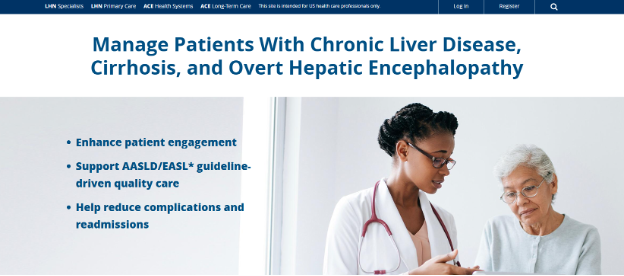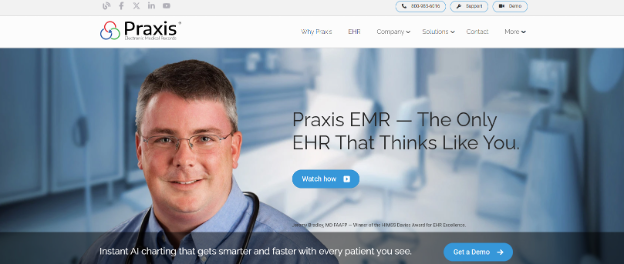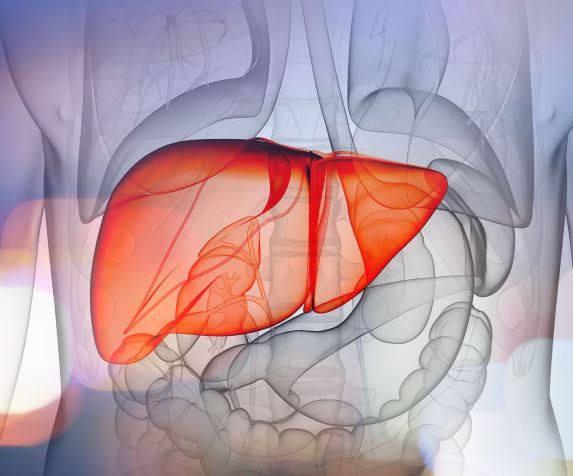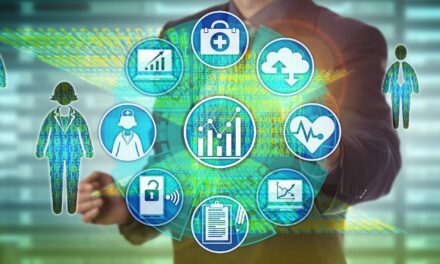Liver disease is a growing global health concern, demanding innovative solutions for early detection, effective management, and improved patient outcomes. Within rapidly evolving digital health, diagnostics, and clinical support tools, four leading platforms stand out—each offering a unique approach to help clinicians, labs, and care teams choose the best fit for their needs.
1. Echosens Liver Health Management (LHM) Platform

Echosens Liver Health Management (LHM) Platform is a cutting-edge, cloud-based solution designed to transform liver disease management. It seamlessly integrates with the renowned FibroScan® device to automate the transfer and interpretation of liver health data, enabling clinicians to make timely, data-driven decisions. The platform supports early detection and routine screening for conditions such as MASLD and MASH, which are often underdiagnosed until late stages.
LHM’s secure, remote access ecosystem is ideal for organizations seeking to streamline workflows, improve patient outcomes, and stay ahead of rising disease prevalence. It’s backed by thousands of peer-reviewed studies, making Echosens the trusted choice for comprehensive, noninvasive liver care.
Key features:
| Automated transfer and synchronization of FibroScan® results to the cloud | Remote interpretation and decision support tools |
| Secure, HIPAA-compliant data storage and access | Access to additional resources and clinical care pathways via Echosens Academy |
2. Liver Health Now

Liver Health Now is a patient-centric platform dedicated to raising awareness, providing education, and supporting early detection of liver disease. It offers a wealth of resources for both patients and health care professionals, including risk assessment tools, educational materials, and guidance on navigating medical challenges.
Liver Health Now collaborates with leading experts to ensure up-to-date, evidence-based information, coordinated care, and reduced readmissions. It supports proactive screening and risk management and improves communication on these matters.
Key features:
| Interactive risk assessment tools for early detection | Comprehensive educational resources |
| Partnerships with advocacy groups | User-friendly guides for navigating care pathways |
3. CyberLiver CirrhoCare

CyberLiver offers the CirrhoCare platform — designed specifically for the remote management of patients with cirrhosis. Using a combination of wearable technology, a patient-facing app, and clinician dashboards, it enables continuous monitoring of symptoms, vital signs, and lifestyle factors. The platform supports early intervention by alerting clinicians to signs of deterioration, helping to reduce hospital admissions and improve patient outcomes.
CirrhoCare’s evidence-based approach is supported by clinical trials and real-world deployments, making it a valuable tool for organizations focused on proactive, technology-driven liver care.
Key features:
| Real-time remote monitoring | Automated alerts for clinicians based on patient data trends |
| Patient self-management tools | Clinician dashboard for streamlined care coordination and decision support |
4. Praxis EMR

Praxis EMR is a leading electronic health record (EHR) platform tailored for hepatology. Unlike template-based systems, Praxis uses an AI-driven concept processor that adapts to each clinician’s unique workflow. This enables faster and more accurate documentation, as well as personalized care. The system supports comprehensive liver disease management, including integration with lab results, imaging, and patient histories.
Praxis EMR is designed to improve efficiency, reduce administrative burden, and enhance clinical decision-making for hepatologists and liver clinics. Its flexibility and focus on specialty-specific needs make it a strong choice for liver health professionals seeking a smart EHR solution.
Key features:
| AI-powered, template-free documentation for personalized workflows | Seamless integration with lab, imaging, and diagnostic data |
| Specialty-specific tools for liver disease management and tracking | Advanced reporting and analytics for quality improvement and compliance |
Comparing the Best Liver Health Management Platforms for Health Care Organizations
Each of these four leading platforms offers something slightly different to suit a wide range of needs.
| Platform | Core Strength | Technology | Ideal Setting | Unique Value |
| Echosens LHM | Noninvasive, cloud-based | FibroScan® integration | Clinics, hospitals, telehealth | Automated, guideline-backed liver care with seamless integration |
| Liver Health Now | Patient education and support | Risk tools, education | Community, primary care | Empowerment through accessible knowledge |
| CyberLiver CirrhoCare | Remote cirrhosis management | Wearables, mobile app | Outpatient, home monitoring | Continuous, proactive patient monitoring |
| Praxis EMR | Specialty EHR for hepatology | AI-driven documentation | Liver clinics, specialists | Adaptive, template-free EHR for liver care |
Criteria for selection included:
- Clinical relevance: Platforms must directly address key needs in liver disease management, such as diagnosis, monitoring, patient engagement, or workflow optimization.
- Innovation and differentiation: Each platform was chosen to represent a distinct approach, from noninvasive diagnostics and remote monitoring to patient education and specialty EHR solutions.
- Evidence and adoption: Preference was given to platforms with demonstrated clinical use, peer-reviewed validation, or strong adoption in health care settings.
- Audience fit: Solutions were prioritized based on their value to health care organizations, clinical labs, and liver health professionals.
Implementation Considerations
The best liver health management platforms for health care organizations are those that fit seamlessly into their operations. To ensure a strong fit, it’s important to involve key stakeholders early, including clinicians, IT staff, and administrative teams.
Assess your organization’s current workflows and identify integration points within existing systems. Provide thorough training and ongoing support to ensure smooth adoption and maximize the platform’s benefits.
Finally, set clear goals for measuring success, such as improved patient outcomes, workflow efficiency, or patient engagement, to track the impact of your chosen solution.
Choosing the Right Liver Health Management Platform
Selecting the best platform for liver health management depends on the organization’s specific needs, patient population, and clinical workflows. Whether you prioritize advanced diagnostics, patient engagement, remote monitoring, or specialty EHR integration, there is a leading solution to fit your requirements. With these tools, health care teams can improve early detection, streamline care, and ultimately achieve better outcomes for people living with liver disease.
Sponsored by

Medqor is committed to protecting and respecting your privacy. We may contact you about our products and services or share information with sponsorship partners, as well as other content that may be of interest to you. By submitting your information, you consent to us contacting you for this purpose in accordance with our privacy policy.
For further information, please check out our privacy policy here




